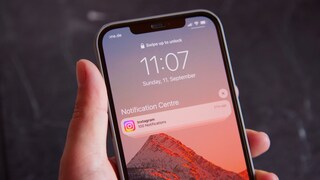
The study highlighted that edtech, childcare, and coding apps accessed the highest number of dangerous permissions, with about two-thirds of childcare and edtech apps having access to children’s exact locations. 100% of edtech and coding apps having access to the camera
A recent study conducted by data privacy services firm Arrka has shed light on the alarming extent to which Google and Facebook are major recipients of data collected from children’s apps.
The research, encompassing 60 children’s Android applications across nine categories, including games, edtech, school, coding, and childcare, revealed that Google leads the pack, gathering 33 per cent of the data, followed by Facebook at 22 per cent, as reported by The Economic Times.
Shivangi Nadkarni, the Co-founder and CEO of Arrka, expressed concern over the processing of personal data from children without sufficient safeguards, despite a global increase in focus on children’s privacy and the implementation of various regulations over the past year.
Related Articles
The study highlighted that edtech, childcare, and coding apps accessed the highest number of dangerous permissions, with about two-thirds of childcare and edtech apps having access to children’s exact locations, and 100 per cent of edtech and coding apps having access to the camera.
The study identified several smaller data recipients, such as AppsFlyer and AppLovin, each contributing around 2 per cent of the overall trackers identified, collectively receiving 38 per cent of the data.
Moreover, 85 per cent of the surveyed apps were found to have accessed at least one “dangerous permission,” indicating the potential for the misuse of highly sensitive data that could harm children.
Analytics trackers were embedded in 80 per cent of the children’s apps, and 54 per cent featured advertising trackers. Gaming, edtech, and coding apps topped the list in terms of the number of trackers.
The report also underscored a significant disparity in age-gating mechanisms among Indian apps compared to global counterparts. Only 35 per cent of Indian apps collect the user’s date of birth, and merely 13 per cent restrict access to certain features based on age, as opposed to 60 per cent and 55 per cent in the US and EU apps, respectively.
The study further revealed that Indian children’s apps lag behind in transparency measures, such as having a dedicated section for parents in the privacy policy.
Only 38 per cent of Indian children’s apps had such a section, compared to 83 per cent for European apps and 67 per cent for US apps. Additionally, 35 per cent had a separate privacy policy for children, in contrast to over half of US and EU apps.
The research emphasized the importance of compliance with the Digital Personal Data Protection Act (DPDPA), passed in August of the previous year, which includes provisions to prevent the misuse of data that could adversely affect children’s well-being. It concluded that Indian apps have room for improvement in various aspects of privacy and transparency compared to their global counterparts.


